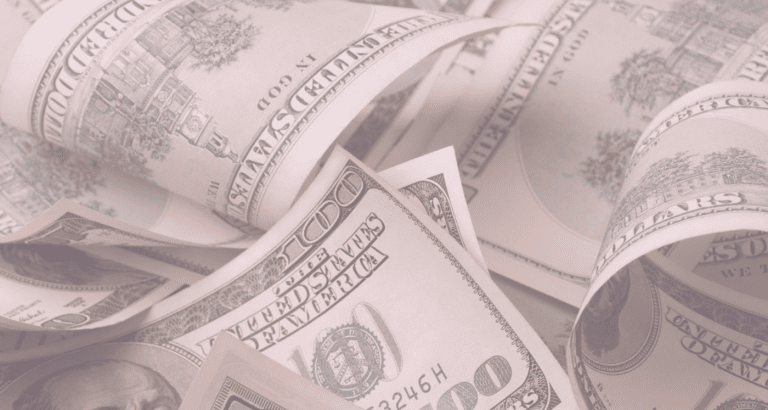How To Correct A Mistake On A Money Order [Process Explained]
![How To Correct A Mistake On A Money Order [Process Explained] 1 Hands opening a money binder with instructions about How To Correct A Mistake On A Money Order](https://herpaperroute.com/wp-content/uploads/2021/11/How-To-Correct-A-Mistake-On-A-Money-Order.png)
A money order is a safe way to transfer money from a bank account that can then be turned into cash or put into another bank account. Financial experts say it is more secure than writing a personal check.
This means that when filling out a money order form, corrections and errors are not well tolerated. Issuers like to keep things as secure as possible when helping move money around.
As an affiliate partner of various brands and sponsored content, HerPaperRoute may earn commission on qualifying purchases. Disclaimer
So can you correct a mistake on a money order? Correction policies on money orders differ depending on the institution you buy them from. Though some tolerate corrections, it is best practice to cancel and redo your money order form.
To understand if you should submit a corrected money order. It is important to know how they work and how you should handle them.
What Is A Money Order?
A money order is very similar to a personal check. You use it when you want to pay someone in a more secure way than writing a personal check.
You can get them at banks, grocery stores, convenience stores, and check-cashing companies.
Can You Correct Mistakes On A Money Order?
You generally cannot correct mistakes on a money order due to security reasons. Another reason is that banks and other institutions need the information to be clear so that the transaction is carried out efficiently and effectively.
If there are scribbles and scratches, bankers and money order processors can get confused and potentially wire the money incorrectly. To prevent this from happening, any corrections on a money order are prohibited.
Some institutions are more lenient with their correction policy. Depending on where you purchase the money order, there may be some differences in how you can correct a money order.
But, for the most part, money order issuers do not allow for mistakes to be corrected.
What Happens If You Fill Out A Money Order Form Incorrectly?
The worst part about filling out a money order form incorrectly is that it becomes an inconvenience. Since most distributors of money orders do not allow corrections, any edits on the document can render it invalid and ineligible for cashing.
If there is a mistake on it, the money order must be canceled or refunded. When you find that you filled out information incorrectly, all you must do is ask to cancel the money order and request a new one from the cashier.
This usually causes no trouble to anyone but you. In order to prevent mistakes try to focus on the document and what you write.
Before submitting the money order to the cashier, teller, or distributor, it is best to review all the information one more time. Basically, just check that you filled in all the information correctly.
If you notice any mistakes, you can address the problem right then and there. If there is a mistake found later on, you may have to take another trip to the distributor to sort things out.
To save you time, take a few seconds to double check the information on your money order.
Correction Policies For Different Issuers
Money order distributors maintain similar policies when it comes to submitting money orders. If there are minor fixes in spelling, that may be no issue.
If there are scratches, then issuers may reject the document. If mistakes make you nervous about filling out a money order, you should be aware of the different institutions’ acceptance policies from which you can purchase one.
United States Postal Service
The United States Postal Service (USPS) says that you should not correct any mistakes on your money order form. The USPS replaces any damaged or incorrect money orders for free.
If you wish to replace the form, you need to return the document and its receipt to be eligible. The USPS gives you a new money order form after completing another form called a Money Order Inquiry.
Western Union
Western Union’s official correction policy is that the purchaser cannot make any corrections to mistakes on the money order form, no matter the information provided. Despite the strict policy, some Western Union agents tell customers that modifications are okay, as long as there is no modification to the amount of the money order.
When there are corrections in the line requesting the amount of money, banks and issuers become suspicious of the recipient. They think the money order may have been tampered with.
To prevent suspicion and any confusion, try to avoid making mistakes that require cross-outs and edits. While Western Union agents say that this is acceptable, it is always best to avoid these situations.
Banks
Popular banks across the United States stay consistent with their correction policy on money orders. Most, if not all, banks say that you should avoid making any errors when filling out a money order form.
If you do encounter a hiccup, most banks say that corrections to name spellings and addresses are tolerable. Anything else could lead to canceling and replacing your form.
Many banks in the United States offer free money order forms so that making any errors on the first one is no big deal. Just keep in mind you may have to pay a small fee to cancel the form.
If you must cancel and replace it due to an error on the bank’s part, the fees are waived.
Is It Better To Redo A Money Order Form That Has Mistakes?
If you end up having to scribble something out or make corrections to information on your money order, it is best to cancel and replace it. This saves a lot of potential confusion and errors that may pop up when transferring money.
Some issuers allow for corrections to be made as long as it is not in the amount. The bottom line is that some institutions are more lenient when it comes to correcting a mistake on a money order, but it may be better to have a clean one without any corrections.
How Do You Buy A Money Order?
A money order is very similar to a personal check. It is a way to transfer money from your bank account to pay someone else.
To purchase a money order, you must pay with cash, a debit card, or a traveler’s check. Most issuers of money orders prefer not to use credit cards or personal checks when processing the purchase.
If the issuer does allow you to use a credit card, the transaction could be treated as a cash advance. Purchasing a money order requires you to pay the full amount, plus a small fee.
This fee ranges typically between one and five dollars. The price varies based on where you purchase the money order.
How Do You Cash A Money Order?
Cashing a money order is very similar to cashing a personal check. First, you must take it to any location that cashes money orders.
These places usually sell money orders, such as grocery stores, the post office, or banks. The best way to ensure that you end up at the right location is to take the money order to the institution that issued it.
When you arrive at the designated location, you need to endorse the money order by signing your name on the back. For security purposes, it is best to wait to endorse the order form when you arrive to cash it.
After endorsing the money order, you need to verify your identity. This can be done with any government-issued identification like a driver’s license or passport.
You get your money after paying a service fee. Don’t worry, though, because the cost tends to be low and can be deducted from your money order.
You may not even have to pay fees at all. Before leaving the location or bank, I highly recommend you place the cash in a safe spot.
If you do not want to cash the money order, you can always deposit the money directly into your bank account.
How Long Does It Take For A Money Order To Clear?
Money orders clear in a matter of seconds—if that. They take almost no time to process.
If you, or the person you are sending a money order to, want to cash it out, you can do so almost immediately. However, the time to receive your money is different if you deposit the money order into your bank account.
This has nothing to do with the money order so much as the bank itself. It usually takes time to process a deposit into your bank account, typically about 24 hours.
Can You Cancel A Money Order?
You can cancel a money order if you need to as long as it wasn’t already cashed out. To do so, you need to complete some paperwork.
Depending on the institution where you bought the order form, you can fill out the cancellation paperwork either in person or online. It is easier to cancel a money order if you have the original receipt.
If you don’t have it, you need to find evidence of your purchase, such as a photo. This may require another fee if you cancel without a receipt.
What Are Some Reasons to Use Money Orders?
Money orders do not require you to have a bank account, unless you receive a money order and transfer it to your account.
Since it does not require this information, a money order is good if you do not have a bank account. It also acts as a better form of payment to send through the mail.
A money order is also beneficial when you do not want to carry around a lot of cash. It is more secure in case someone tries to rob you.
If you have to make a big purchase, money orders are much more secure than having cash on you.
Are Money Orders More Secure Than Checks?
Money orders are more secure than personal checks. Cashier’s checks are also a safer form to transfer or deposit money.
They act similarly to money orders, except that they are considered safer. This is because if a cashier’s check gets lost or stolen, there is a more secure and precise process that follows to retrieve your money.
What Should You Do If Your Money Order Gets Lost Or Stolen?
It is easy to replace or refund a lost or stolen money order. All you have to do is go to the location you purchased it from, show your receipt, and request either a replacement or a refund.
Cashier’s checks are a lot more cautious when one gets lost or stolen. For this process, you need to request a new one from the bank and, most likely, buy an indemnity bond from an insurance company.
An indemnity bond protects the bank if you lose the check again. It takes between 30 and 90 days for a new check request to be issued because there are many more particular aspects to this process.
Overall, replacing or refunding a lost or stolen money order is quite simple versus comparable payment methods.
How To Fill Out A Money Order Form
Like personal checks, you must fill in some information to activate the money order. You need to confirm the correct amount of money being transferred before filling in your name and contact information.
You also need to write the name of the recipient and add their contact information. Money orders also have a memo line, similar to personal checks, so that you can identify the particular reason for payment.
Once all the information is complete, you must sign the front to activate the money order. After paying for the money order, it is always a good idea to hold on to the receipt in case your order becomes lost or stolen.
This lets you get a replacement or refund much easier than without a receipt. Without one, you could be out a good chunk of money.
It is important to limit the number of mistakes you make when filling out the money order. Incorrect information on the order can lead to ineligibility and more time spent buying another one.
Conclusion
Money orders are a secure way of transferring money. In general, if you make a mistake while filling out the money order, it’s best to cancel it and start again. This prevents confusion and mistakes when cashing it.
Scratches and scribbles are indications that institutions look for before cashing a money order to help prevent fraud. While money orders do have a small fee, they are a fast and secure way to transfer money and cost less than cashier’s checks.
Related Articles:
![How To Correct A Mistake On A Money Order [Process Explained] 5 woman writing a check showing how to correct a mistake on a money order](https://herpaperroute.com/wp-content/uploads/2021/11/how-to-correct-a-mistake-on-a-money-order.jpg)
Follow along on Instagram!


![How To Correct A Mistake On A Money Order [Process Explained] 2 woman writing a check showing how to correct a mistake on a money order](https://herpaperroute.com/wp-content/uploads/2021/11/how-to-correct-a-mistake-on-a-money-order-180x180.jpg)
![How To Correct A Mistake On A Money Order [Process Explained] 3 therapy findr - best way to find online therapists](https://herpaperroute.com/wp-content/uploads/2025/07/therapy-findr-ad.jpg)
![How To Correct A Mistake On A Money Order [Process Explained] 4 masterclass become a content creator](https://herpaperroute.com/wp-content/uploads/2024/09/become-a-content-creator-free-class.jpg)
![How To Correct A Mistake On A Money Order [Process Explained] 6 entrepreneur planner profit business planner notion](https://herpaperroute.com/wp-content/uploads/2024/02/profit-business-planner_lg-copy.jpg)





